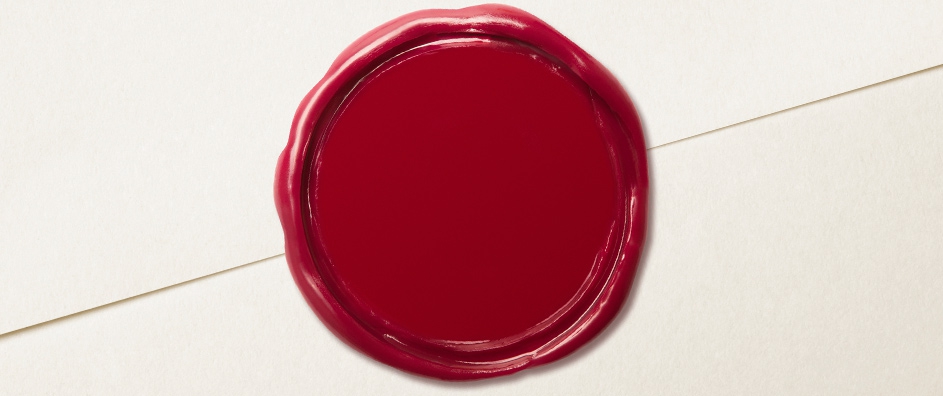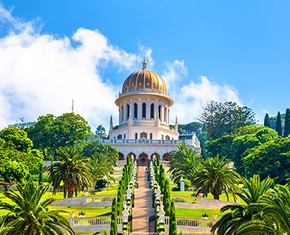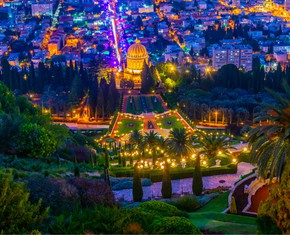The views expressed in our content reflect individual perspectives and do not represent the authoritative views of the Baha'i Faith.
Most Muslims agree: since Muhammad is the “Seal of the Prophets” (Quran 33:40), therefore Muhammad is the last prophet, end of story, case closed.
But what if Muhammad is also the gateway for future messengers of God, and not the last of the prophets? Such a possibility would come as a complete surprise to many if not most Muslims. So let’s look at a surprising Muslim tradition, which Baha’u’llah himself actually refers to in the Baha’i writings.
In Baha’u’llah’s Sura of Patience—revealed on April 22, 1863 in Baghdad on Ridvan, the first day of the Baha’i Festival of Paradise—he wrote:
Recite then unto them that which the celestial Dove of the Spirit hath warbled in the holy Riḍván of the Beloved, that perchance they may examine that which hath been elucidated concerning “sealing” by the tongue of him he who is well-grounded in knowledge in the prayer of visitation for the name of God, ‘Alí [Imam ‘Alī]. He hath said—and his word is the truth!—:
“[He (Muḥammad) is] the seal of what came before Him and the harbinger of what will appear after Him.”
In such wise hath the meaning of “sealing” been mentioned by the tongue of inaccessible holiness. Thus hath God designated His Friend [Muhammad] to be a seal for the Prophets who preceded Him and a harbinger of the Messengers who will appear after Him. – Baha’u’llah, the Sura of Patience, provisional translation by Omid Ghaemmaghami.
Here, Baha’u’llah quotes from a prayer for Ali, Muhammad’s first male follower. Ali later became the prophet’s son-in-law when he married Muhammad’s beloved daughter Fatima. In Islamic history, Ali served as the fourth “rightly guided” Caliph, the head of the Faith. Shia Muslims consider Ali as the rightful successor to Muhammad himself. Sunni Muslims disagree—but all Muslims agree that the Prophet Muhammad dearly loved Ali, and that Ali was one of the most revered Muslims of all time.
In a recent book on Baha’u’llah’s Sura of Patience (called Sayrī dar Būstān-i Madīnatu’ṣ-Ṣabr in Persian)—Dr. Foad Seddigh has pinpointed the exact reference for the prayer which Baha’u’llah originally quoted, which contains this startling line: “[He (Muhammad) is] the seal of what came before Him and the harbinger of what will appear after Him.”
Dr. Seddigh has located and validated this prayer in several authoritative sources. He states that one of its earliest publications is found in a book called Kāmilu’z-Ziyārāt, a well-known Muslim collection of prayers of visitation, or prayers meant to be read at the graves of the Prophet Muhammad, the Shia Imams, and other Shia figures. Kāmilu’z-Ziyārāt was probably compiled by the Shia scholar Ibn Qūlūya (d. 978 or 979 CE). The eleventh chapter of Ibn Qūlūya’s book of prayers begins on page 92. This chapter is entitled: “Visiting the grave of the Commander of the Faithful [Imam ‘Alī], how the grave should be visited, and what to pray at the grave.”
You can find the statement Baha’u’llah refers to on p. 97—it is the second “ḥadīth” (tradition) cited. This same statement is also found in prayers of visitation for the shrine of Imam Husayn and in a prayer to be said at the shrines of all of the Imams. The visitation prayer for Imam Ali’s shrine has the exact words Baha’u’llah revealed—verbatim. This prayer, universally recognized and used by Shia Muslims, is variously ascribed to the Sixth and Tenth Imams. (References courtesy of Omid Ghaemmaghami and Dr. Foad Seddigh.)
Baha’u’llah’s understanding of this tradition differs from the traditional understanding by Shia scholars. Dr. Seddigh points out this fact. On page 97 of the Kāmilu’z-Ziyārāt, one Shia scholar (whom Dr. Seddigh quotes) paraphrases the tradition as follows:
“That is to say, [Muḥammad] is the seal of the Prophets who appeared before Him or their religious communities, or the knowledge and mysteries that preceded Him, and the harbinger of the Proofs (i.e., the Shī‘ī Imams) who will follow Him or the knowledge, sciences, and wisdom that will appear after Him.” (Reference and translation from the original Arabic, courtesy of Omid Ghaemmaghami.)
So who is right? The Shia scholars? Or Baha’u’llah? This much is certain: Shia scholars and Baha’i scholars agree that Muhammad is “the harbinger of what will appear after Him.”
So now we come full circle. All Muslims agree that the prophet Muhammad foretold the coming of the “Mahdi” in the future. Sunni and Shia Muslims also agree that Jesus will return at the culmination of history:
It was narrated … that the Prophet said: “The Hour will not begin until ‘Eisa bin Maryam [Jesus, son of Mary] comes down as a just judge and a just ruler. – Sunan Ibn Mājah 4078.
Both of these two traditions are classified by Sunni scholars as “sound” that is, fully authentic, and are recognized by Shia Muslims as well. And so it can truthfully be said that Muhammad is the “harbinger of what will appear after Him,” and that this tradition refers to the Mahdi and Jesus, who will appear on the Day of Judgment.
Baha’is believe that these two end-time saviors—the Mahdi and Jesus—have already appeared.
The Bab, the forerunner and herald of Baha’u’llah, was none other than the expected Mahdi, foretold by the prophet Muhammad. The Bab himself proclaimed:
The divine Revelation associated with the advent of Him Who is your promised Mihdí [the Mahdī] hath proved far more wondrous than the Revelation wherewith Muḥammad, the Apostle of God, was invested. Would that ye might ponder. – Selections From the Writings of the Bab, p. 146.
“To Sunni Islam,” Shoghi Effendi wrote in God Passes By, Baha’u’llah was “the descent of the “Spirit of God” (Jesus Christ)” – p. 94.
So how do Baha’is understand the Muslim visitation prayer cited above? Muhammad, the “Seal of the Prophets,” was “a seal for the Prophets who preceded Him and a harbinger of the Messengers who will appear after Him,” meaning the Bab, Baha’u’llah, and future messengers of God.
You May Also Like
Comments

















interchangeably . Quran XXXIII,40 states Muhammad to be a Rasool and the final Nabi.
While a Rasool can also prophecy one who is only a Nabi does not bring commandments or laws.Quran XIX,51,53 further elucidates this by indicating Moses
as the Rasool (Who proclaimed the Ten Commandments) and His brother Aaron as merely a Nabi (prophecier).Nowhere n the Quran is Muhammad called the Last Messenger (Khatim ul Rasool) but only Khatim ul nabi (the last prophecier or prophet.
The Quran's warning Sura V.67 regarding this corruption by ...its votaries to create some sort of "manifest destiny" for themselves, is now being played out for all the world to witness.
J.K. Fozdar
XXV. PRAYERS AND MEDITATION BY BAHA'U'LLAH:
Glorified art Thou, O Lord my God! I beseech Thee by Thy Chosen Ones, and by the Bearers of Thy Trust, and by Him Whom Thou hast ordained to be the SEAL OF THY PROPHETS AND OF THY MESSENGERS, to let Thy remembrance be my companion, and Thy love my aim, and Thy face my goal, and Thy name my lamp, and Thy wish my desire, and Thy pleasure my delight.